Getting to university has been a mission in itself. We live in Roma Sur, about a 20-minute drive from Iberoamericana. Doesn’t sound very far, right? Wrong. I never want to hear another Aucklander complain about traffic until they experience Mexico City. That same 20-minute drive takes us an hour in the morning rush and sometimes two hours in the night rush. Because of this, we must get the 7:40 am bus for our 9 am start. While at first, waking up at 6 was a dreadful reality, it has now become one of my favourite parts of this experience. Getting to have our cute little breakfast as a group, then walk out into the crisp morning air where we talk about nonsense till we reach the bus stop. We see the hustle of this city. On the bus, we again talk about everything to do with everything. This group feels like family already, and it has only been ten days.
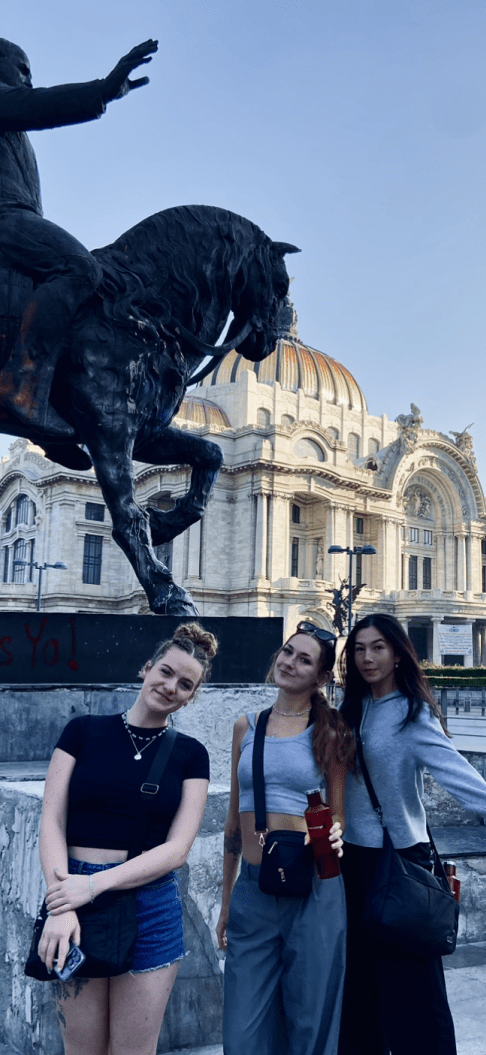
Spanish Classes
Our first class every morning, Monday to Thursday, is Spanish. We have been revising the basics of Spanish, to begin with, which has been very beneficial. Even though I do have intermediate speaking abilities, I have already noticed an improvement in my communication through this revision. It has been so much fun using Spanish, and we all try to minimize the amount of English we use. It is interesting being on the other side of a language barrier as the one not really clued in. I was worried about this, along with culture shock, but it has turned out to be a positive challenge. My pronunciation and comprehension have rapidly progressed within these ten days alone, so I cannot wait to see how this improves over six weeks. Starting next week, two other girls and I will get some more challenging in-class work to continue our progress and keep pushing our abilities.
Lecture Topic
We are lucky enough to have some eye-opening lectures provided for us by Ibero. We get taught by many experts who work in many fields of activism. This week, in particular, our focus was human rights, and we mainly looked at enforced disappearances. This is an unfortunate reality for Mexican society. Since 2006, over 100,000 forced disappearances and over 50,000 unidentified bodies have been found. These disappearances have escalated through the war on drugs and the rise of organized crime within Mexico. We have studied a critical case of enforced disappearances in Iguala, Guerrero. In 2014, a bus of 43 male students disappeared, and only some bones from one student were found in a rubbish bin. There has been no other indication of where these students ended up or in what state. While this is a terrible story, it is unfortunately not unique. Our lectures provide a different approach to political studies, which I am not used to; real-life connections. Don’t get me wrong, I get a lot of this through my courses; however, these topics are not theory or distant realities in Mexico City. It is happening down the road. For example, we got notified by TravelOracle to avoid the metro lines this week due to the deployment of 6,000 national guard troops for ‘better safety’. We learnt in our lecture that this is evidence of the militarization of Mexico, which has for so long had other lasting impacts on the human rights of its citizens. Next week our topic is Migration. I am very excited to continue learning.
Workshop Classes
Our workshops are a more hands-on, practical part of our schedule where we apply the knowledge we learn to social projects we decide to do. We have a lovely teacher for this workshop, Maria Jose, who is with us for five weeks. She is helping us to understand the process of turning theory and knowledge into practical action. So far, we have had a lot of discussions about positionally. This is understanding our experiences as part of our context in understanding and learning. We each wrote a simple autobiography describing how we came to have specific values in our lives. I talked about growing up with split parents and living in West Auckland. I also talked about how I have always been pushed to have a good work ethic from a young age. It’s funny, especially about work here; everyone finds it fascinating that I work in a bar. I don’t know why. I have been thinking about a few different projects for these classes, particularly understanding how punishment is viewed and enacted in Mexico, political corruption, and gendered violence. The topic I will look at is an understanding of organized crime as a rogue economy and how this contributes to unequal power distributions in society. I am not sure how I will turn this into a project yet; however, with my criminology major back home and passion for understanding the criminal mind, I think this will interest me greatly. Especially in West Auckland, it would be interesting to see common themes across organized crime internationally and understand what promotes these groups.
NGO Visits
Every Friday, we have visits with an NGO, a non-government organization whose cause relates to our topic for that week. This week we had the privilege of speaking with CentroProdh, a human rights NGO. Their work is centred around providing advice and orientation for people who have faced human rights violations. In some cases, they take on a more integral defence role, but they work as a first point of contact for the most part. The NGO is divided into five essential areas: defence, communication, education, international and direction. In our talk with two International team members, we discussed two prominent issues regarding human rights in Mexico; enforced disappearances and militarization. It was a very emotional day learning about the struggles and critical social issues that affect a massive part of this population. Following our lecture, we explored their headquarters and met most of the different teams. Our whole group felt ignited with the drive and passion for continuing to contribute to this work. We now have the tools, information and connections to continue making a difference even once we are home. This was one of my favourite days, especially since we finished having a ‘Rosca de tacos’ (taco wreath) for dinner.
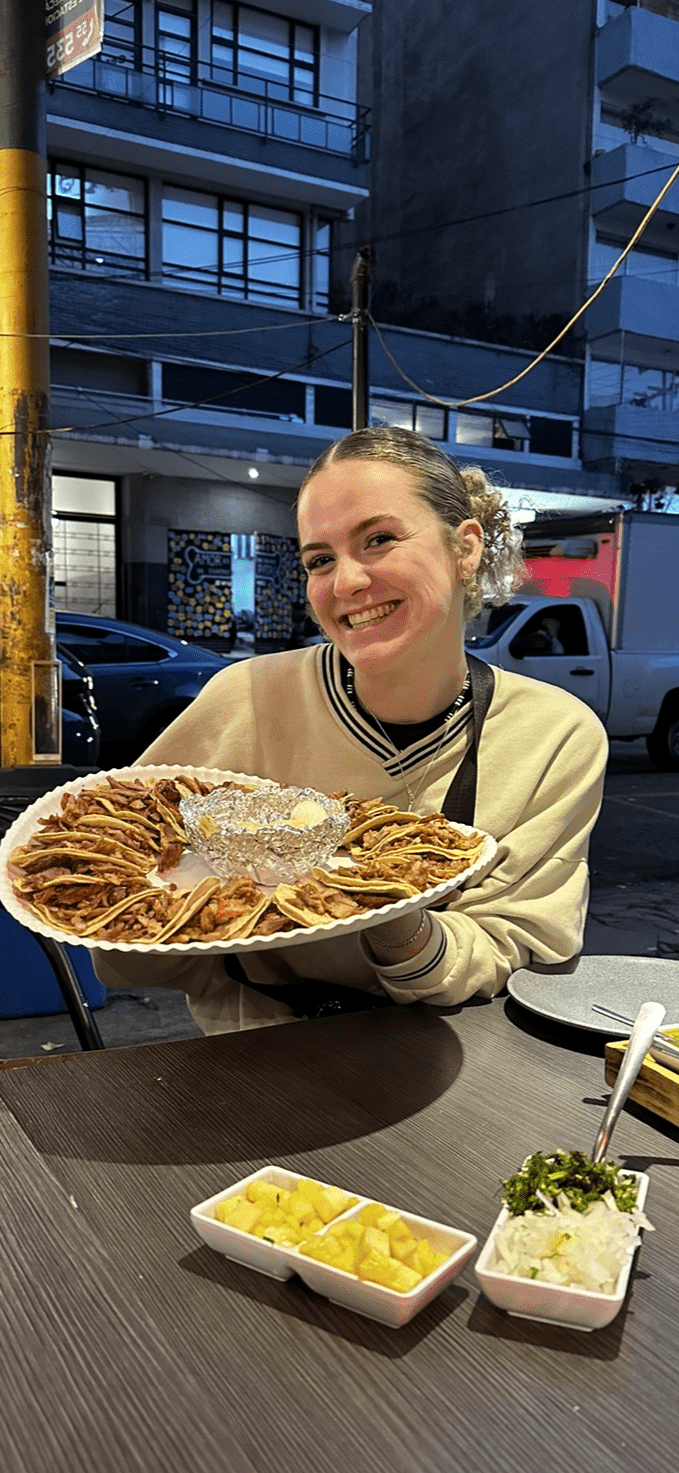
Teotihuacan Pyramids
Saturday was a planned trip to the Teotihuacan Pyramids. We took a bus there, a beautiful ride through more of the city I had not seen before. Once we got there, our group was met by Daniel, who would be our tour guide for the day. I was speechless walking into the central plaza. Seeing the pyramids in real life was unlike anything I had ever seen. There were 20 pyramids, including the two biggest pyramids of the sun and the moon. This site had been abandoned for over 12 centuries before archaeologists restored it in 1905. 70% of this site is restored, and 30% is still original, which is astounding for the age. We learnt about the feathered snake god and the crocodile rain god, two of their most important. Agriculture was the most significant part of life in Teotihuacan. Something exciting about these pyramids is that they were built with layers, not to contain anything. They would encapsulate their structures to preserve them. Something else very fascinating was the precision of their symmetry everywhere. There is an apparent purpose for everything.
One of my favourite facts of the day was how Teotihuacanos would purposely flood their plazas once a year to reflect the night sky as they were prominent astronomers. After our whole tour, we did some shopping at the little stalls around the pyramids, and then we bussed to a beautiful lunch spot. We had a buffet of many different traditional Mexican dishes. My favourite at the moment is pineapple with tajin, a chilli and lemon seasoning which is fantastic on fruit. After our lovely lunch, some of the other New Zealand group and I played touch. We taught some of the other exchange students who had never played before. It was an excellent finish to the day and so much fun just running around.
To finish the week, the girls and I went to our usual Sunday morning cafe near our house for a coffee and croissant before ubering to the handmade market. The market is absolutely massive and very easy to get lost in. We got matching bracelets together and some other little things. We then went to our usual fruit market. We got mangoes, passionfruit, mandarins, and many other tropical fruits for the week. Later on, we did our menu for the week, I am making tacos, of course, and then we went to the supermarket. You know you’re old when you get excited about going to the supermarket. It has been a crazy busy week, but I am enjoying every second of it.

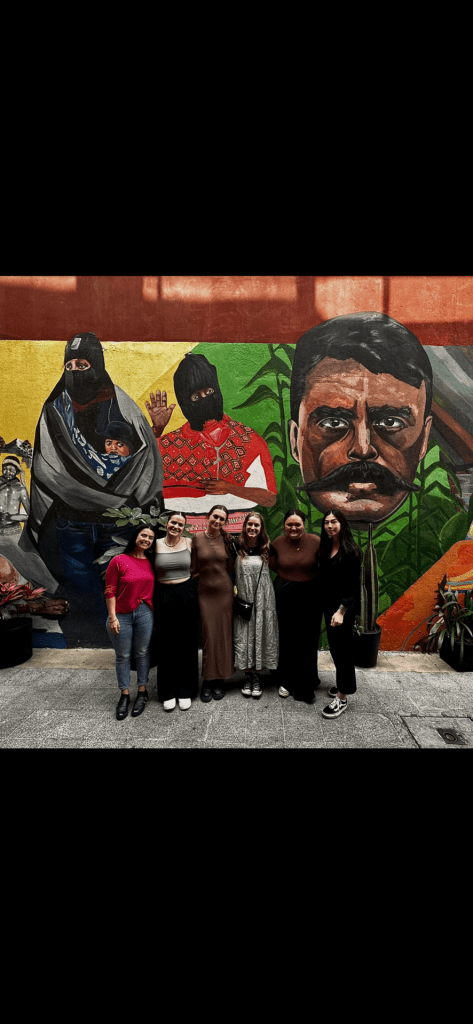

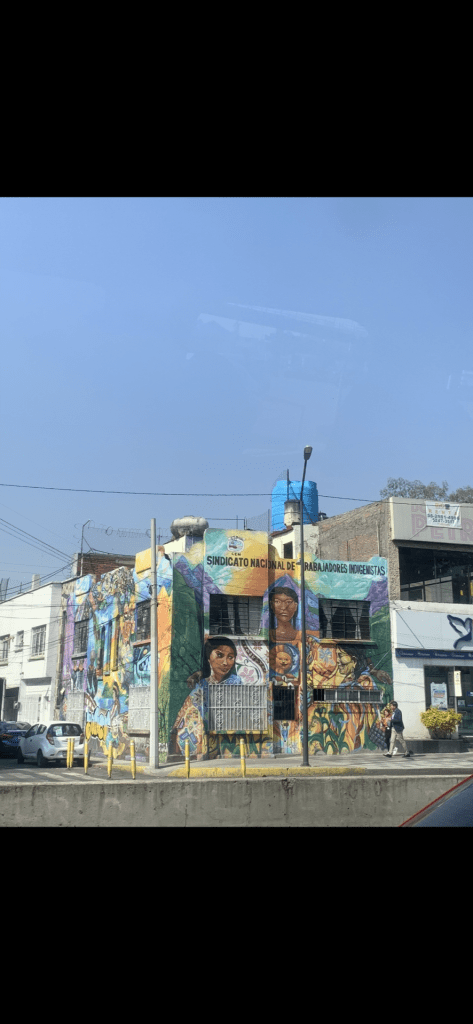

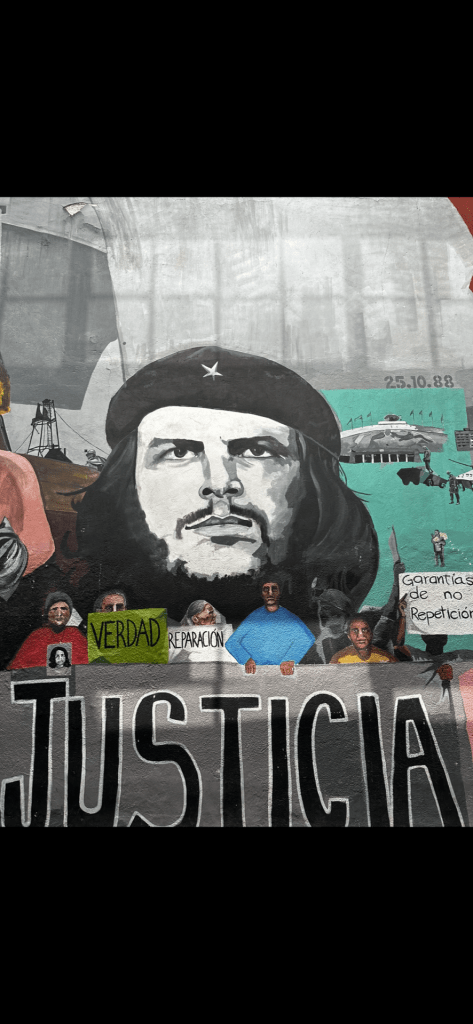
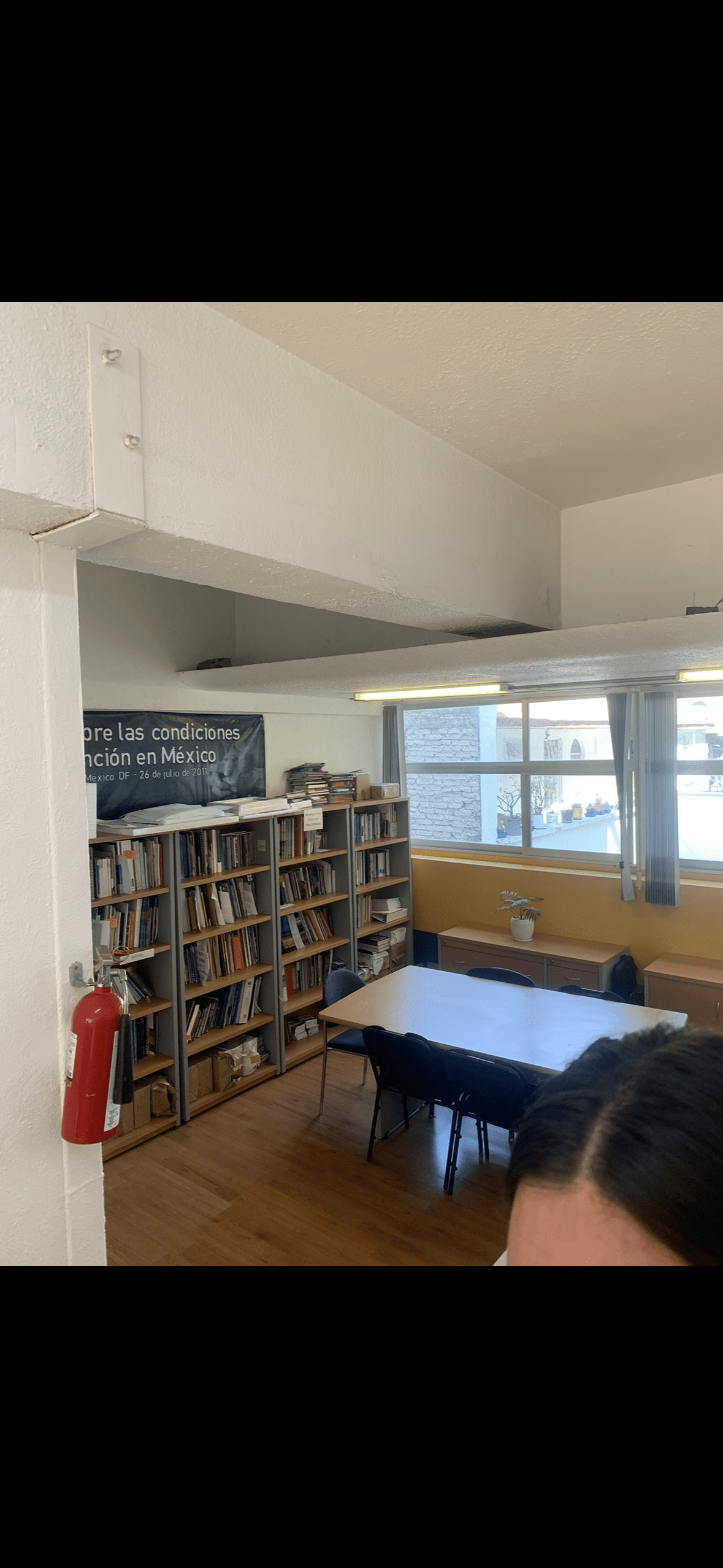

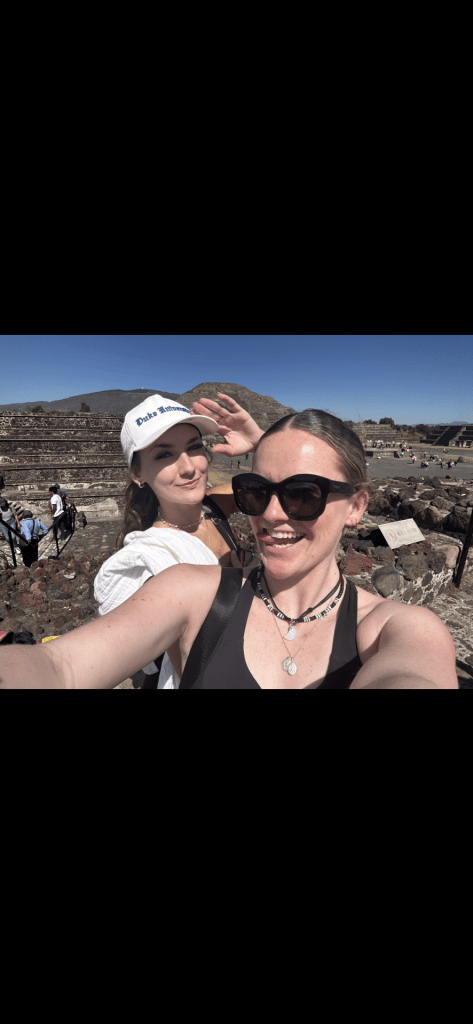
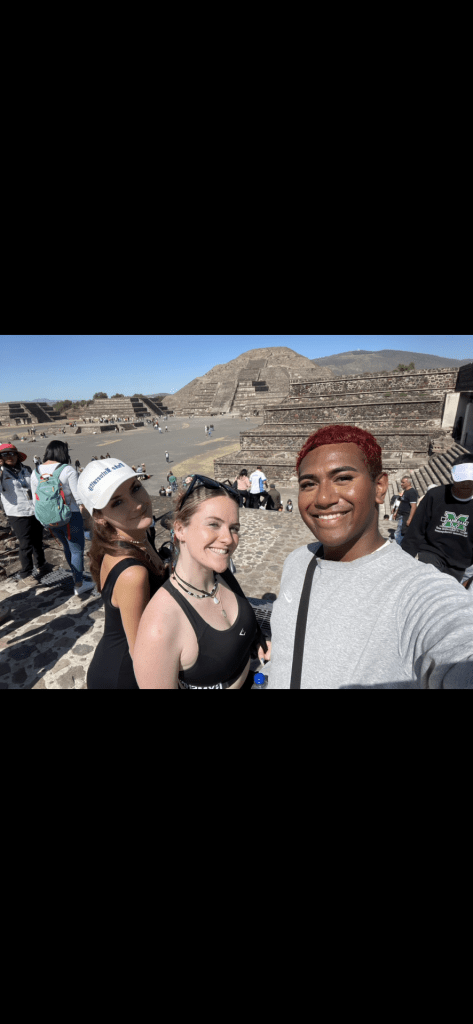
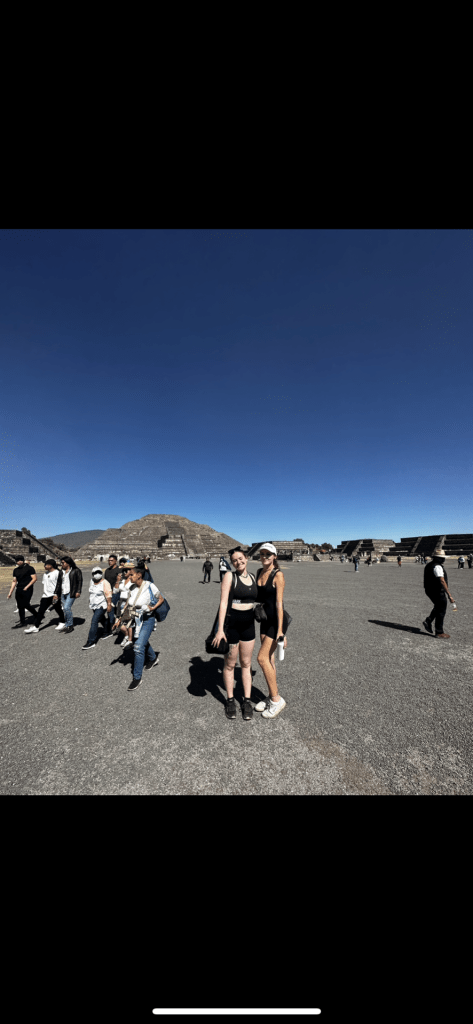
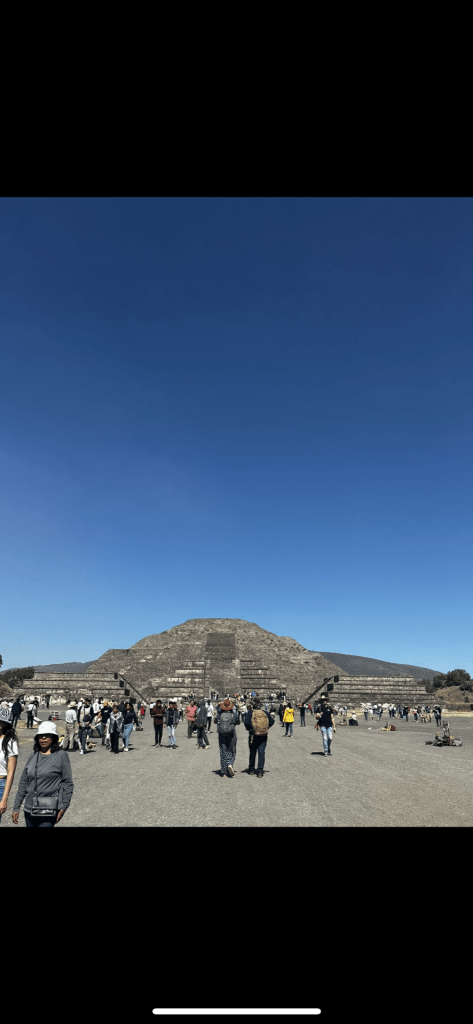
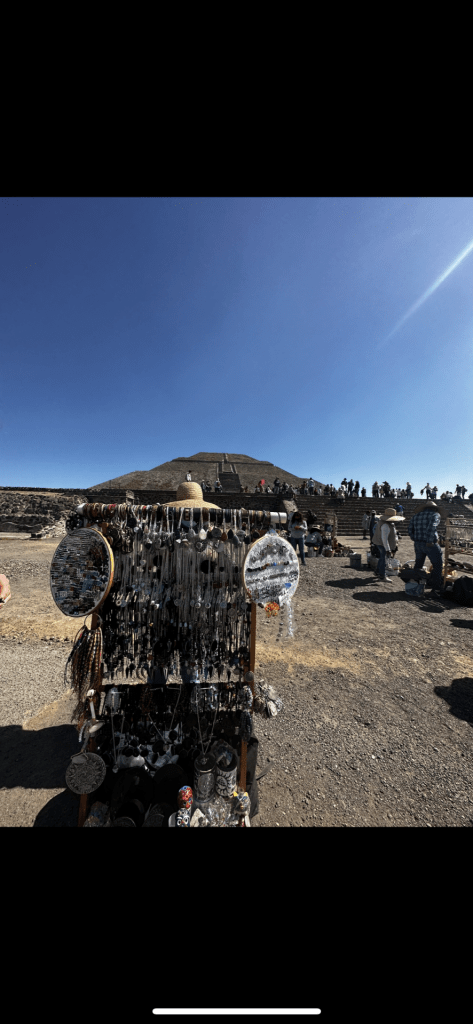

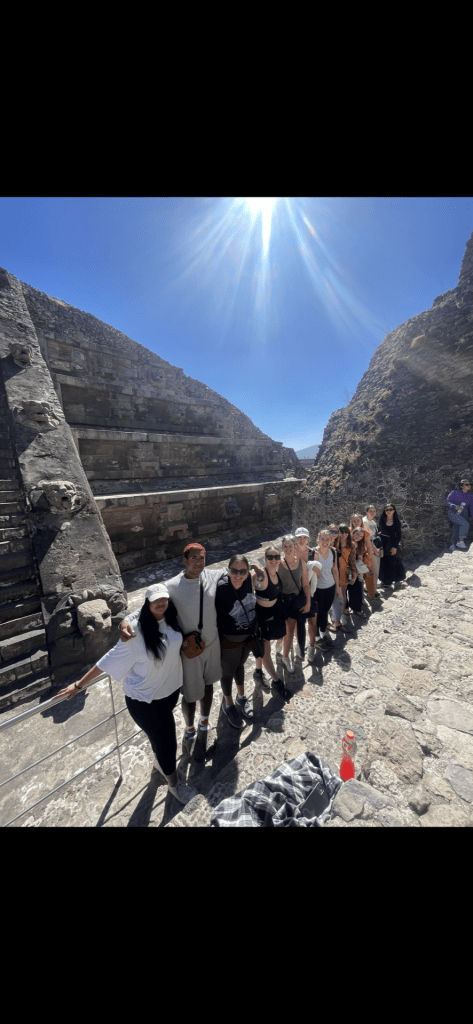
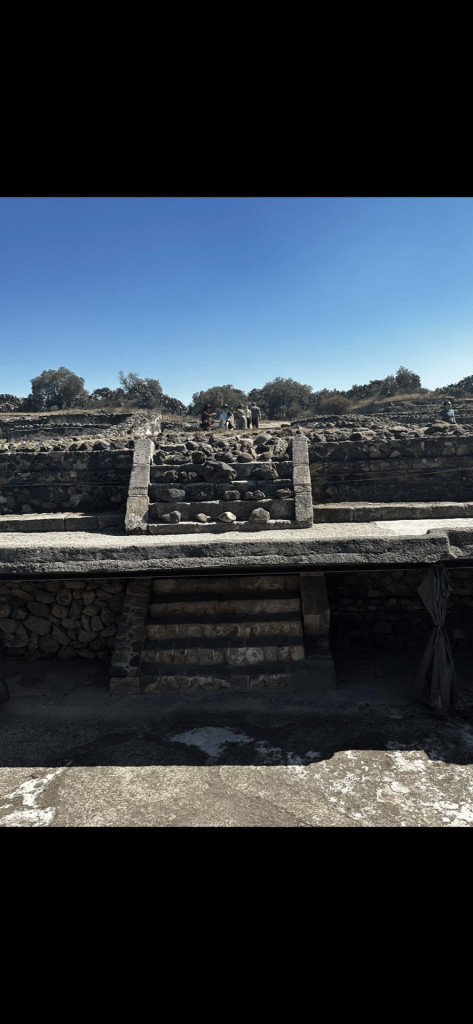
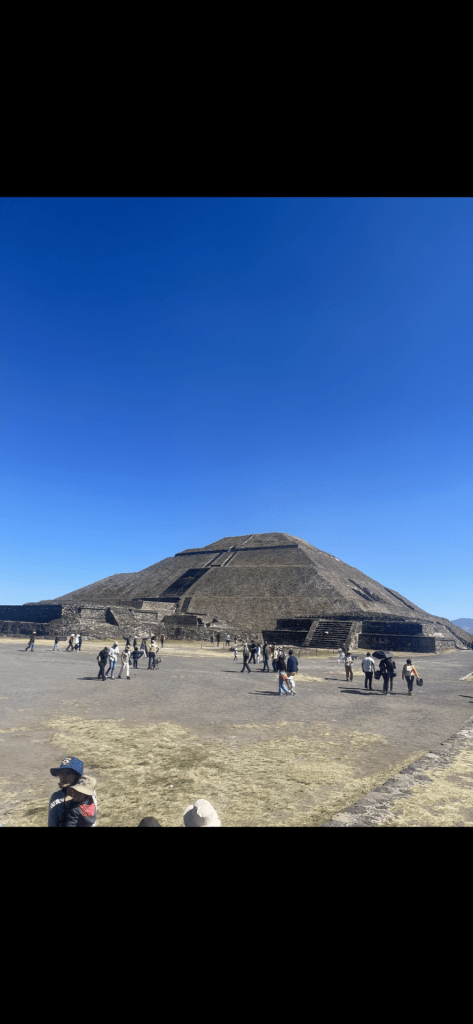
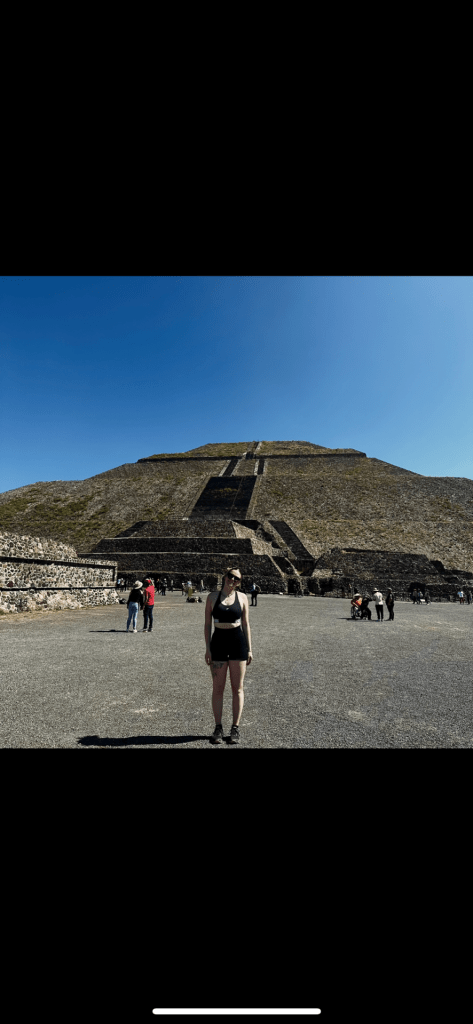
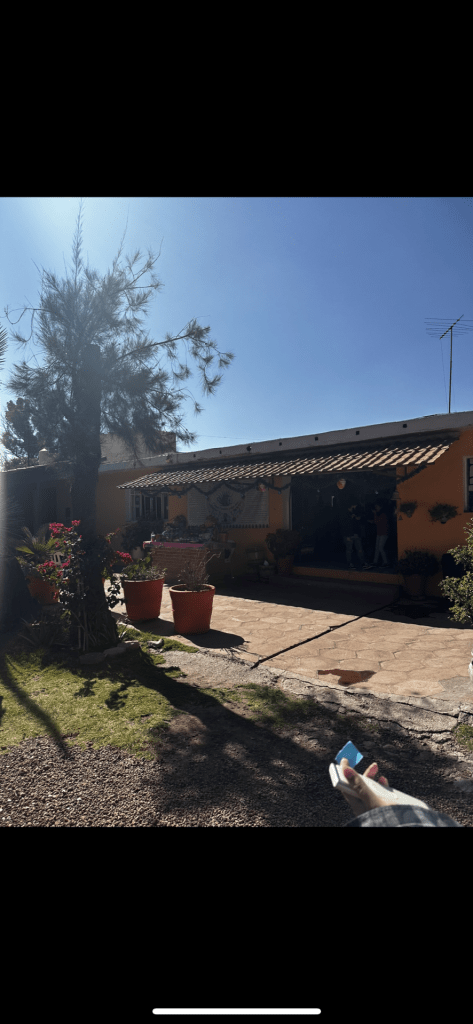


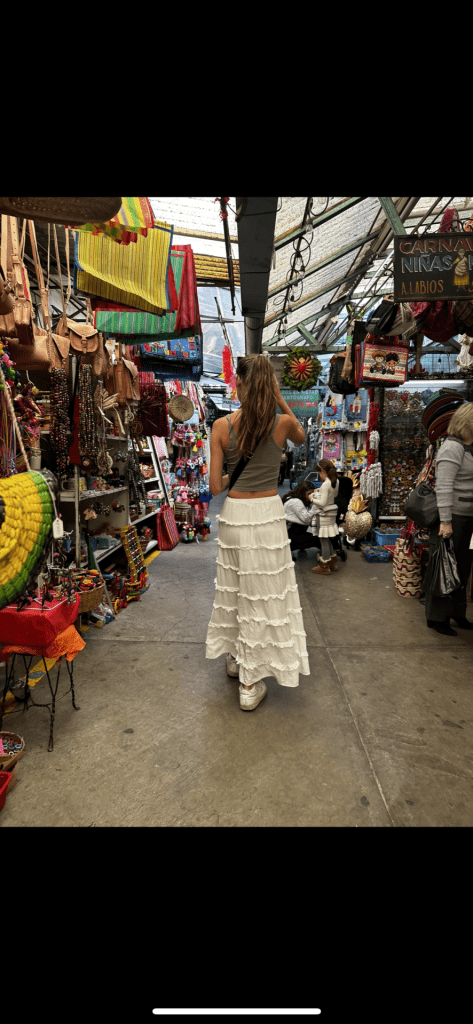
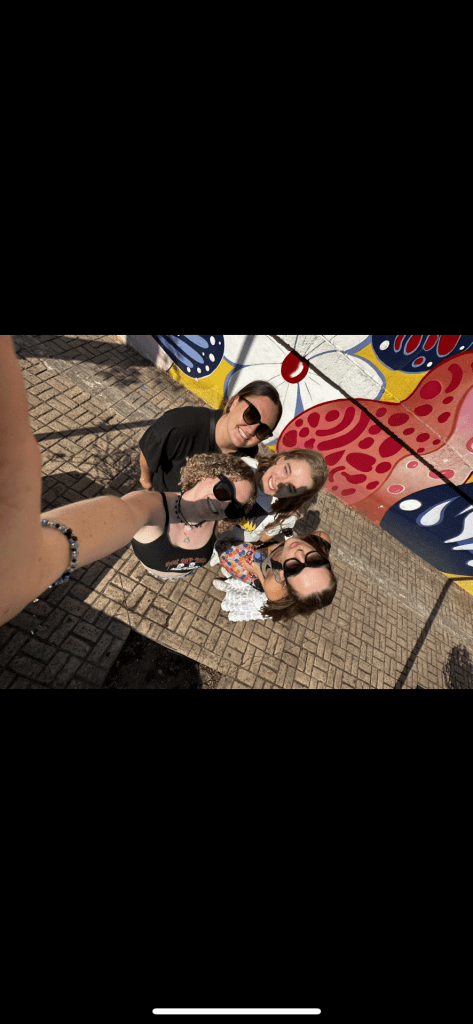

What an amazing experience ! Stay safe Xx
Wonderful writing Tay you are painting me a picture of beautiful Mexico. I love the craft work the vibrant colours in their pieces. I felt so sad when you spoke of the disappearances it is something I feel I have heard about my whole life and was horrified at the numbers you quoted only from 2006 when I think of the numbers before that too. The feeling of hopelessness must be overwhelming and I’m thankful for the great work these NGOs do such vital work for the poor people with no power. Delighted to hear of your travels and looking forward to learning more. Lots of love darling xxx
A v readable summary of great interest
Is it wise to be habitual about going to the same cafe same time each day